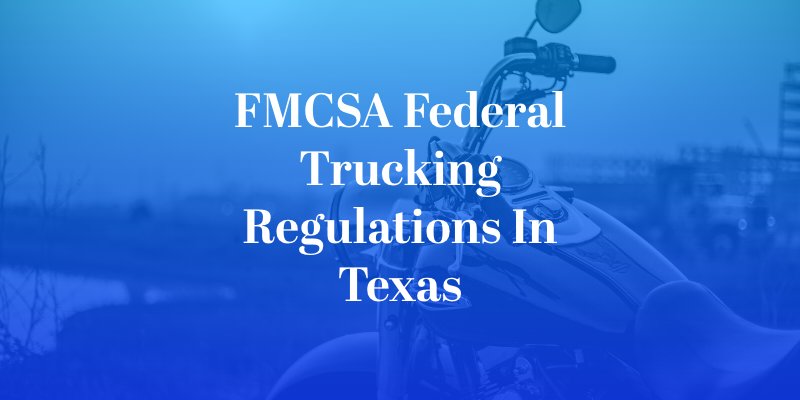Every year, thousands of large commercial trucks move through the State of Texas en route across the country. These big rigs are required to abide by certain federal rules and regulations to ensure public safety. If a trucking company or truck driver violates any of these rules, this can be used as evidence of fault to support a Texas truck accident case. Make sure to speak with an experienced truck accident lawyer in San Antonio for legal guidance.

Hours-of-Service Rules
Drowsy driving is a significant problem among long-haul truckers, with hours spent alone on the road and overnight shifts. To help prevent fatigue in commercial trucking, the Federal Motor Carrier Safety Administration (FMCSA)enforces hours-of-service (HOS) regulations.
HOS rules limit the number of hours a driver can operate a commercial truck:
- 14-hour on-duty limit: drivers cannot drive beyond their 14th consecutive hour after coming on duty, even if they take breaks during the shift.
- 11-hour driving limit: drivers can drive a maximum of 11 hours after 10 consecutive hours off-duty.
- 60/70-hour weekly limit: no driver may exceed 60 or 70 total work hours in 7 or 8 consecutive days.
- 30-minute break: drivers must take a 30-minute break after 8 cumulative (not necessarily consecutive) hours of driving time.
There are some exceptions to these rules in adverse driving conditions, such as bad weather. However, for the most part, no commercial truck driver may log more than these hours. Exceeding them to save time or money is a federal violation that can lead to citations and a potential drowsy driving accident.
Driver Qualifications
Truck drivers in Texas must carry valid commercial driver’s licenses (CDLs), which are only available if the driver meets minimum age requirements, obtains medical certification and passes a background check. It is against federal law for a trucking company to hire an underage or unqualified truck driver, as well as one with a suspended or revoked CDL.
Drug and Alcohol Testing
The FMCSA requires periodic drug and alcohol testing of truck drivers. This includes testing prior to hiring the driver, after any accidents involving the driver and at random. If a truck driver fails a drug or alcohol test, the employer has a responsibility to take proper corrective action, such as suspending the driver or terminating his or her contract with the company.
Cargo-Related Laws
The FMCSA has cargo loading and securement rules to prevent incidents such as cargo shifting in transit, truck imbalances, rollovers and cargo dropping into the road (lost load accidents). These rules give specific types of straps and tiedowns that must be used to secure cargo to the bed of a truck, as well as special steps that must be taken for transporting hazardous materials.
The Consequences of FMCSA Regulation Violations
If there is evidence that an FMCSA federal trucking regulation has been violated in Texas, this can come with various consequences for the trucking company. If a rule violation caused or contributed to a trucking accident, injured victims can seek justice by filing claims or lawsuits against the at-fault party.
Typically, the defendant is the trucking company, as it is responsible for its own federal compliance as well as vicariously liable for the actions of its drivers. Establishing that the trucking company was negligent because it violated an FMCSA regulation can lead to a settlement or judgment award for the victim’s losses.
To discuss a recent truck accident with an experienced injury attorney in San Antonio, contact Hill Law Firm Accident & Injury Attorneys for a free consultation.
